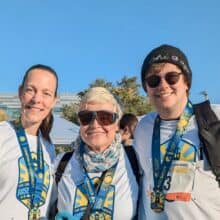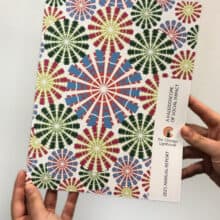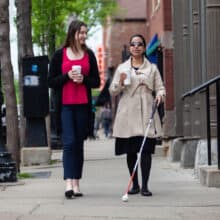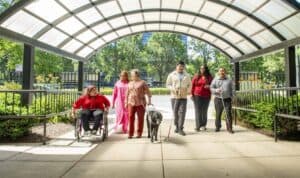Commentary: How Research Can Help Us Better Understand and Address Vision Loss
A popular belief is that when people lose their sight, their other senses “kick in” and get stronger. New research suggests that this might actually be true. Researchers at the Massachusetts Eye and Ear Infirmary recently discovered that enhanced neuronal connections are present in the brains of people who were born blind or lost their sight before the age of three. The study found that in the case of participants who were blind, there were significant differences in both the occipital cortex – the part of the brain that processes visual information – as well as in the areas involved in sensory, language and cognitive processing. In other words, the study suggests that the brains of individuals who are blind are able to adapt and compensate for their loss of sight.
Not only does this research shed light on a theory that has been around for many years, but it will also help us better understand how the brain of those without sight process information. While researchers still do not know exactly how or what causes this rewiring in the brain, these findings can pave the way to innovative forms of rehabilitation.
Without a doubt, good rehabilitation helps people who are blind learn to be more independent. Services like The Chicago Lighthouse’s Educational Programs, for example, teach children who are blind or visually impaired valuable skills that will help them become independent. Our Low Vision Rehabilitation Services teach adults with vision loss helpful techniques that allow them to regain their independence. New research – like that of Massachusetts Eye and Ear Infirmary – will enable The Chicago Lighthouse to develop additional rehabilitation techniques to help people who are blind or visually impaired. With the drastic increase in vision loss due to the aging of the baby boom generation, this will become even more crucial in the upcoming years.
Thanks to new technology and research methods, scientists are better able to understand the human brain and how people are affected by vision loss. This in turn will help organizations, such as The Chicago Lighthouse, devise innovative rehabilitation strategies and techniques that will help people who are blind or visually impaired gain greater independence. I occasionally get asked if it is true that when someone loses a sense – like sight –our other senses get stronger. After reading this research, I will have to tell them that they just might be right.

Sandy Murillo works at The Chicago Lighthouse, an organization serving the blind and visually impaired. She is the author of Sandy’s View, a bi-weekly Lighthouse blog about blindness and low vision. The blog covers topics of interest to those living with blindness and vision impairments. Being a blind journalist and blogger herself, Sandy shares her unique perspective about ways to live and cope with vision loss.





